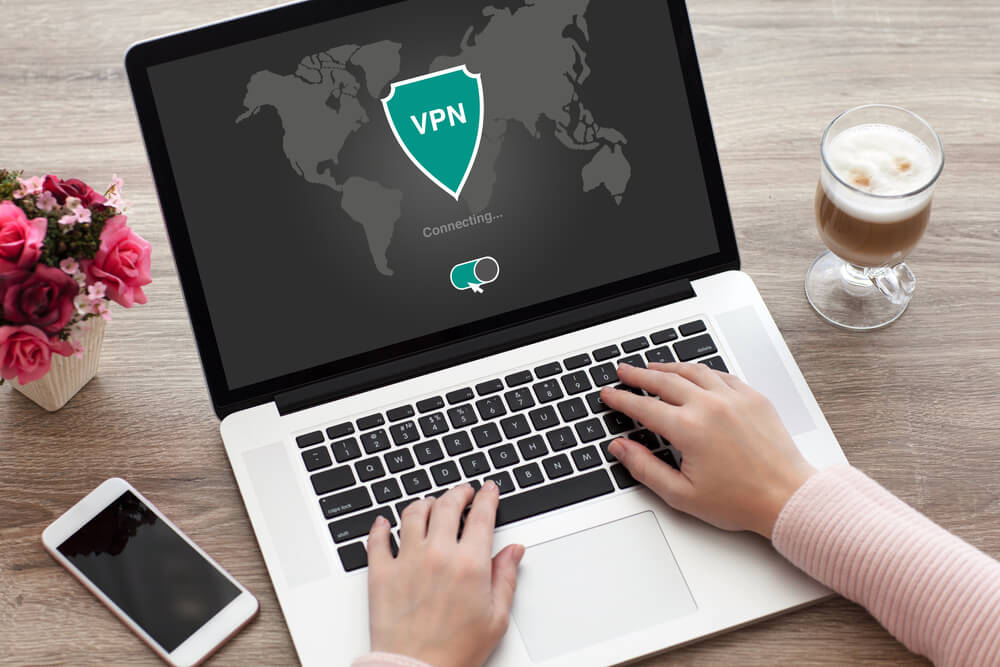With data breaches on the rise, many consumers and business owners now use a virtual private network (VPN) to encrypt their internet traffic. VPNs work by extending a secure private network across a public network (the internet).
To put the popularity of VPNs into perspective, a study conducted by the data insights company GlobalWebIndex suggests that roughly 30 percent of internet users connect to a VPN. This newfound popularity has prompted many tech companies to launch VPN services of their own. But with so many services now available, how do you know which one to choose?

1) Number and Location of Servers
When choosing a VPN, check to see how many servers it uses and wherever those servers are. All VPNs use servers to handle tunneling and encryption processes. When you connect to a VPN, you are connecting to one of the service provider’s servers, which acts as the middleman between you and the websites you visit.
Usually, the more servers a VPN has and the more countries in which they locate, the better. If you want to access content restricted to a specific region, you’ll need a VPN with a server in that region. Furthermore, a higher number of servers means less congestion and improved VPN performance since fewer users are connecting to them.
2) Static IP Address
By default, most VPNs provide you with a dynamic Internet Protocol (IP) address. After connecting to the VPN’s server, your actual IP address (the one allocated to you by your internet service provider) gets replaced with a new IP address by the VPN. These dynamic IP addresses change every time you reconnect, which may present problems for some people.
Certain websites, email services, apps and online games monitor IP traffic to protect against fraud. If they see someone attempting to log in from different IP addresses, they may assume someone has hacked your account. A static or “fixed” IP address prevents this from happening by keeping your IP address unchanged. If a VPN offers a static IP address, you’ll retain the same address.
Because dynamic IP addresses offer a higher level of security, VPNs typically use them by default. With that said, some VPNs provide static IP addresses for an additional fee.
3) Protocol
All VPNs work by encrypting internet traffic between two nodes to create a secure connection. However, there are different protocols used for VPN connections, some of which are more secure than others.
Some of the most common VPN protocols include the following:
- Point-to-Point Tunneling Protocol (PPTP): Developed by a consortium of tech companies consisting of Microsoft, Ascent Communications, and others, PPTP is a now-obsolete VPN protocol that offers the lowest level of online security. The only real advantage of using PPTP over other protocols is its high level of platform compatibility.
- Layer 2 Tunneling Protocol (L2TP): The successor to PPTP, L2TP is a more secure tunneling protocol that’s offered by many VPN service providers. L2TP doesn’t contain encryption specifications, however. Therefore, it’s typically used in conjunction with a separate encryption protocol like Internet Protocol Security (IPsec).
- OpenVPN: Originally developed by James Yonan, OpenVPN is an open-source tunneling protocol that uses OpenSSL encryption as well as the Transport Layer Security (TLS) protocol. Because it’s open source, developers and users alike can check it for vulnerabilities. As a result, OpenVPN offers one of the highest levels of security of all VPN protocol.
- Internet Key Exchange Version 2 (IKEv2): One of the newest VPN protocols, IKEv2 offers a fast, secure and reliable connection. IKEv2 can switch between Wi-Fi and cellular networks while maintaining the VPN connection.
- Secure Socket Tunnel Protocol (SSTP): Developed by Microsoft, SSTP is a VPN protocol that’s available on all Microsoft operating systems. It uses 2048-bit SSL/TLS authentication certificates and 256-bit encryption keys. SSTP is only available on Microsoft platforms.
So, which of VPN protocol should you choose? Except for PPTP, all the protocols mentioned above provide a safe and secure tunneling environment for your online traffic.
4) Speed
The primary purpose of a VPN is to protect the user’s online privacy by encrypting traffic and masking his or her true IP address. That doesn’t mean you should sacrifice speed to achieve this protection, though. Even if your internet service delivers 10 Mbps downloads, a slow VPN may deliver just 1 Mbps. And because the VPN tunnels your internet traffic, your download speeds will never be faster than the VPNs.
true IP address. That doesn’t mean you should sacrifice speed to achieve this protection, though. Even if your internet service delivers 10 Mbps downloads, a slow VPN may deliver just 1 Mbps. And because the VPN tunnels your internet traffic, your download speeds will never be faster than the VPNs.
In addition to choosing a reputable VPN provider, you can also boost your speeds by changing your server. The physical distance between you and the server directly influences your VPN speeds, so connecting to the closest server possible should offer the fastest speeds, assuming it’s not congested or experiencing other problems.
5) Bandwidth Limits and Restrictions
Check to see what, if any, bandwidth limits or restrictions the VPN has. Some VPNs limit the amount of bandwidth you can consume in a given month, whereas others will throttle your connection once you reach a certain amount. Thankfully, most reputable VPN providers won’t limit or throttle your bandwidth. You can continue to use them without worrying about hitting a data cap.
While bandwidth limits and throttling are rare, many VPNs limit the number of concurrent connections you can have. If you want to use your VPN on a desktop and mobile device, you should choose a VPN that offers a minimum of two concurrent connections. That means you can run two devices on the VPN simultaneously. Some VPNs offer up to six concurrent connections, however, allowing you to share your service with friends, family, and coworkers.
6) Cost
Finally, consider the cost when choosing a VPN. Although there are free VPNs available, this is a case in which the saying “You get what you pay for” rings true. Free VPNs are more likely to have bandwidth limits, throttled speeds, outdated encryption protocols and even advertisements.
Most reputable, high-quality VPNs charge either by the month or year. If you opt for a yearly plan, you’ll typically pay less than making 12 individual monthly payments.
Whether you intend to use it for business or personal purposes, a VPN is a smart investment that will protect your online privacy. It encrypts all data you send and receive over the internet while masking your true IP address in the process. Follow the tips listed here to find the perfect VPN for your needs.
More About CP Cyber
CP Cyber is a full service cyber security consulting firm helping our clients uncover risks and build top of the line defenses to prevent cyber crimes. To find out more about us visit our homepage here: https://cpcyber.com or follow our Colorado Cyber Security Google Page.

